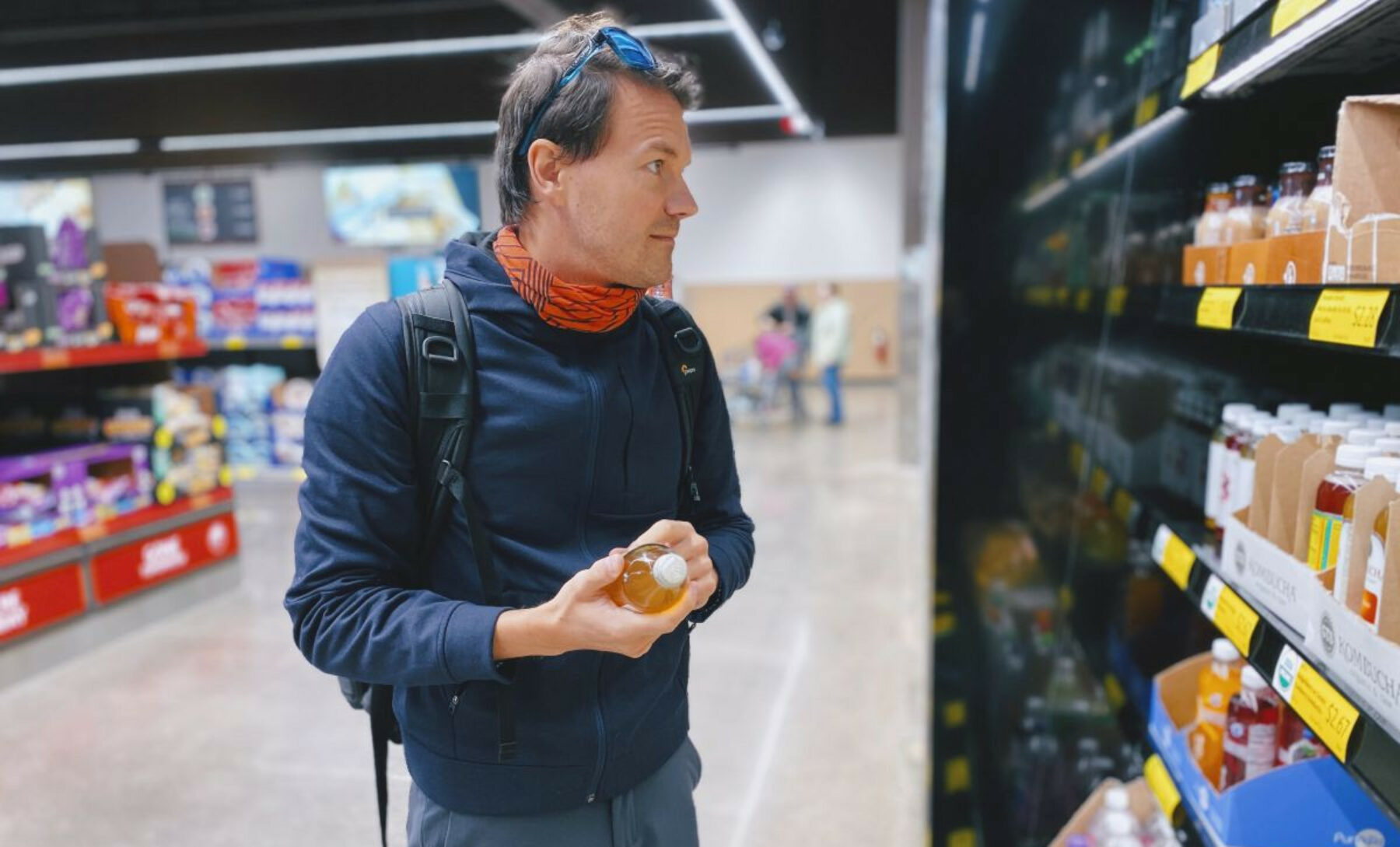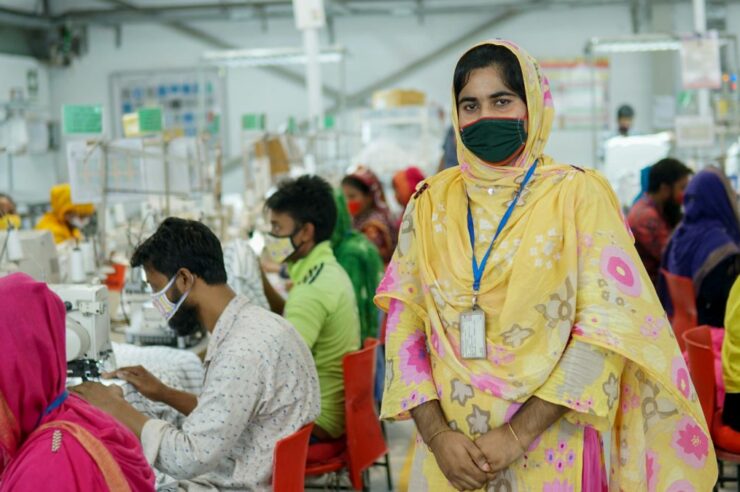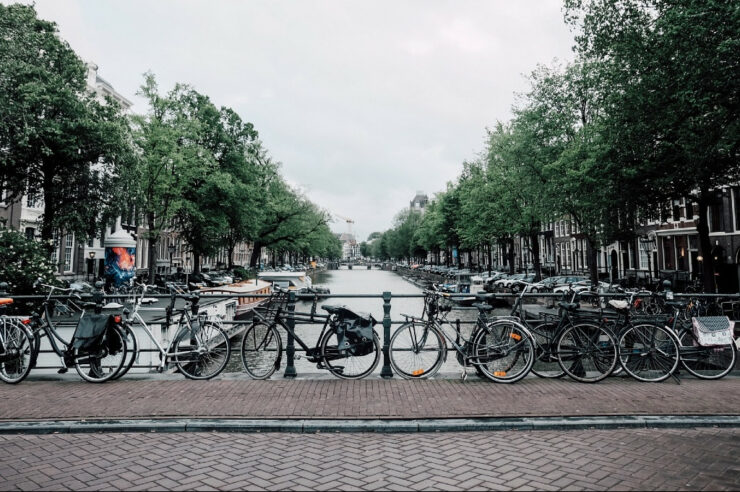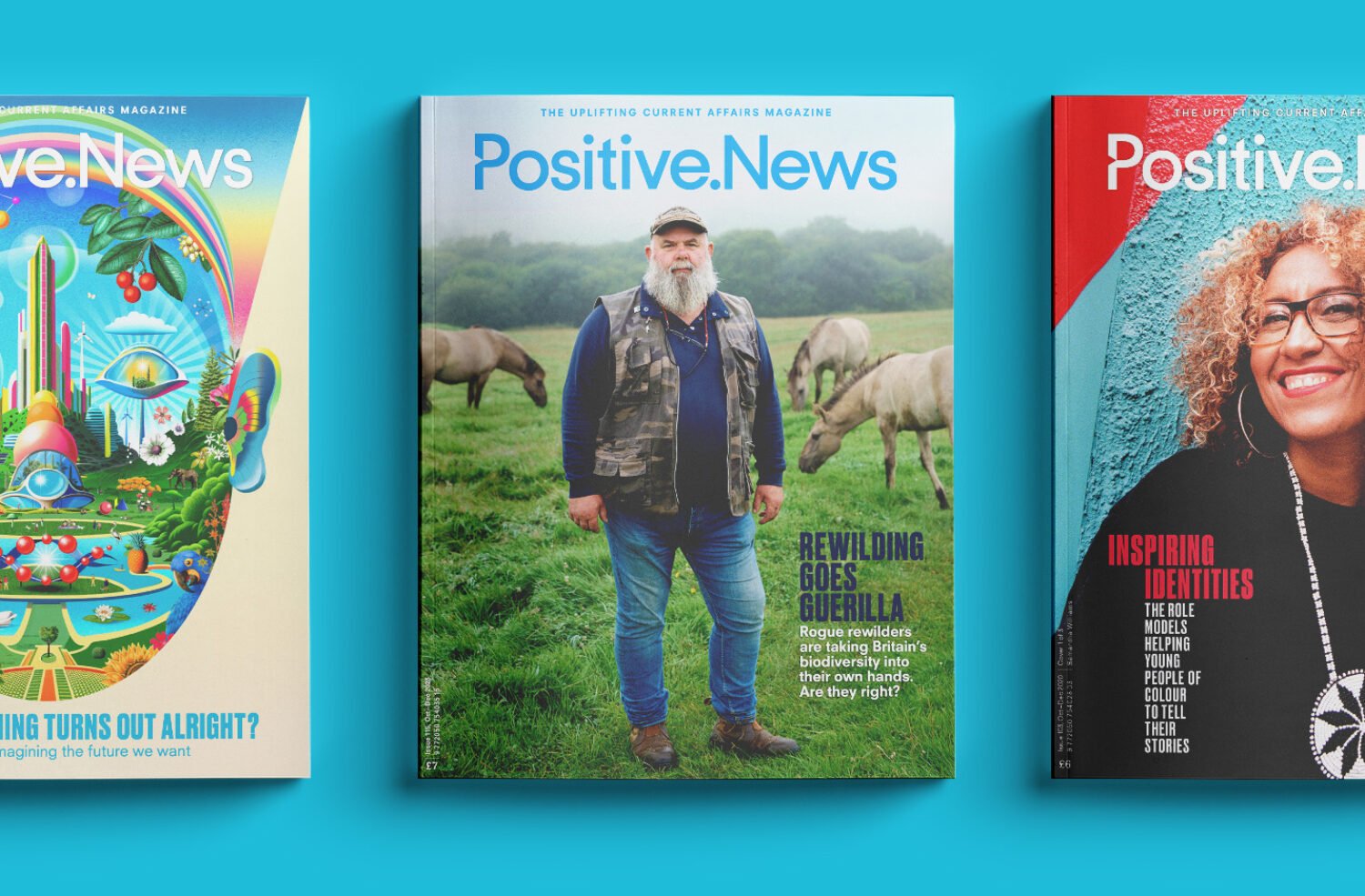By tracking the carbon impact of your spending in real-time and showing you ways to reduce and offset it, CoGo aims to make ethical living easy. Daniel Fahey tries it out
Like most people living through the English lockdown, I haven’t been anywhere in weeks, except to go food shopping or complete my shifts at a cafe. Opportunities to spend money have been limited. I’ve bought a few birthday gifts – mainly from local, independent shops – and yet my carbon footprint this month remains stubbornly high; the same as cutting down 12 trees.
At least that’s according to CoGo, an app I’m using to track the impact my spending has on the environment. It reckons I’m culpable for 718kg of CO2. That’s like driving from Land’s End to John o’Groats and back with a spare 33 miles in the tank for detours or roadworks.
The results are so alarming that I’m now thinking twice about ordering my grandmother the Anton du Beke novel she wants for her birthday (not just for environmental reasons, admittedly). And I’m actively looking at ways to lower my footprint to 180kg a month, the level the app tells me is sustainable.
Described as ‘the first ethical recommendation engine’, CoGo was founded by Ben Gleisner, an environmentalist from New Zealand who wanted to help consumers switch their spending to companies that shared their values.
“Ben realised that government policy would only go so far in terms of driving change at pace and critical to creating this change is empowering consumers with better information to make informed choices to benefit people and planet,” explains Emma Kisby, CoGo’s managing director.
“We’re firm believers that everybody should be progressing to a stage where your spend is seen as a vote – a vote in your local economy, a vote for your favourite businesses, a vote for your political leanings and a vote for the world you want to see.”
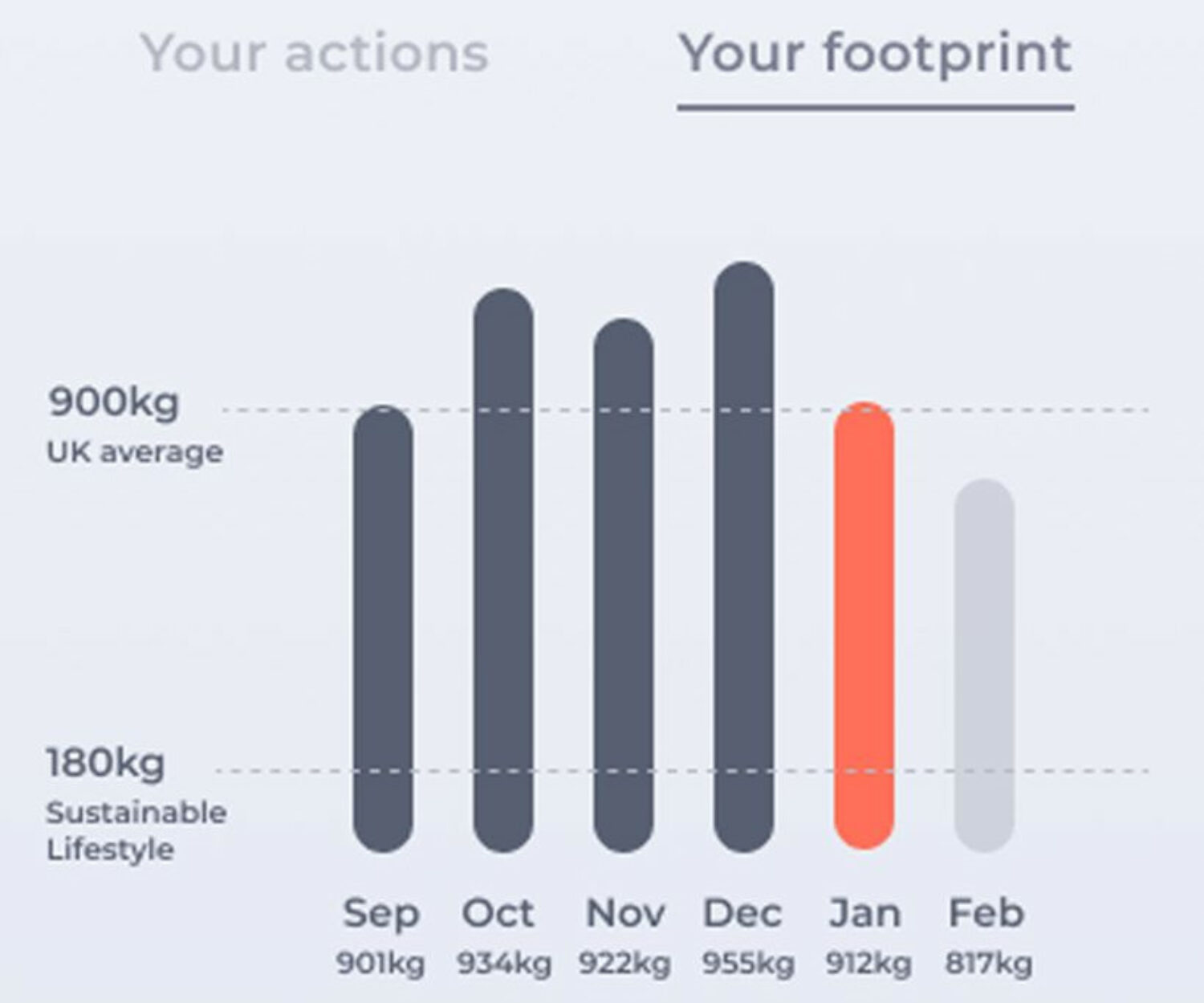
The app gives users a carbon breakdown for their purchases. Image: CoGo
As well as helping encourage more sustainable shopping, the app allows users to offset carbon by donating to projects overseen by Southpole, a social enterprise that works with governments and businesses to decarbonise the economy.
“All of Southpole’s projects adhere to internationally recognised standards for emissions reduction projects and are audited regularly by independent third-party organisations to ensure additionality and environmental integrity of projects,” says Kisby.
The CoGo app has been downloaded more than 50,000 times globally. And it has more than 20,000 UK businesses listed on it, all of which have been approved by partners including the Carbon Trust, the Sustainable Restaurant Association, Social Enterprise UK, Co-Operatives UK and the Living Wage Foundation. It’s a sizeable figure, but for CoGo to offer complete coverage of the UK, it will need many more independent shops and high street retailers to sign up.
Critical to driving [positive] change is empowering consumers with better information to make informed choices
Back on the app and I’m being praised for the positive impact I had on the environment in December. Apparently, I saved 135kg of CO2 by being on a renewable energy tariff and by being vegetarian (this was an approximation as the app can’t tell, say, whether I’m buying Peruvian or British blueberries). It also suggests ways I could further reduce my impact, including composting my food waste and renting clothes instead of buying new. Extending the lifespan of a garment by just three months can reportedly lead to a 5-10 per cent reduction in each of the carbon, water and waste footprints.
One of the companies on the app is Hurr, an online fashion rental platform with a pop-up store in Selfridges, London. “As carbon tracking heats up as an industry, it’s important that Hurr customers can easily understand how CO2 tracking works and the positives of renting rather than buying new,” explains its co-founder, Victoria Prew.
As well as measuring the carbon impact of individual users, the app employs sustainability experts and in-house fact-checkers to monitor the practices of listed businesses. They assess whether companies are reducing waste, paying a fair living wage or donating to social and environmental charities. CoGo also provides feedback to brands to help them improve sustainability.
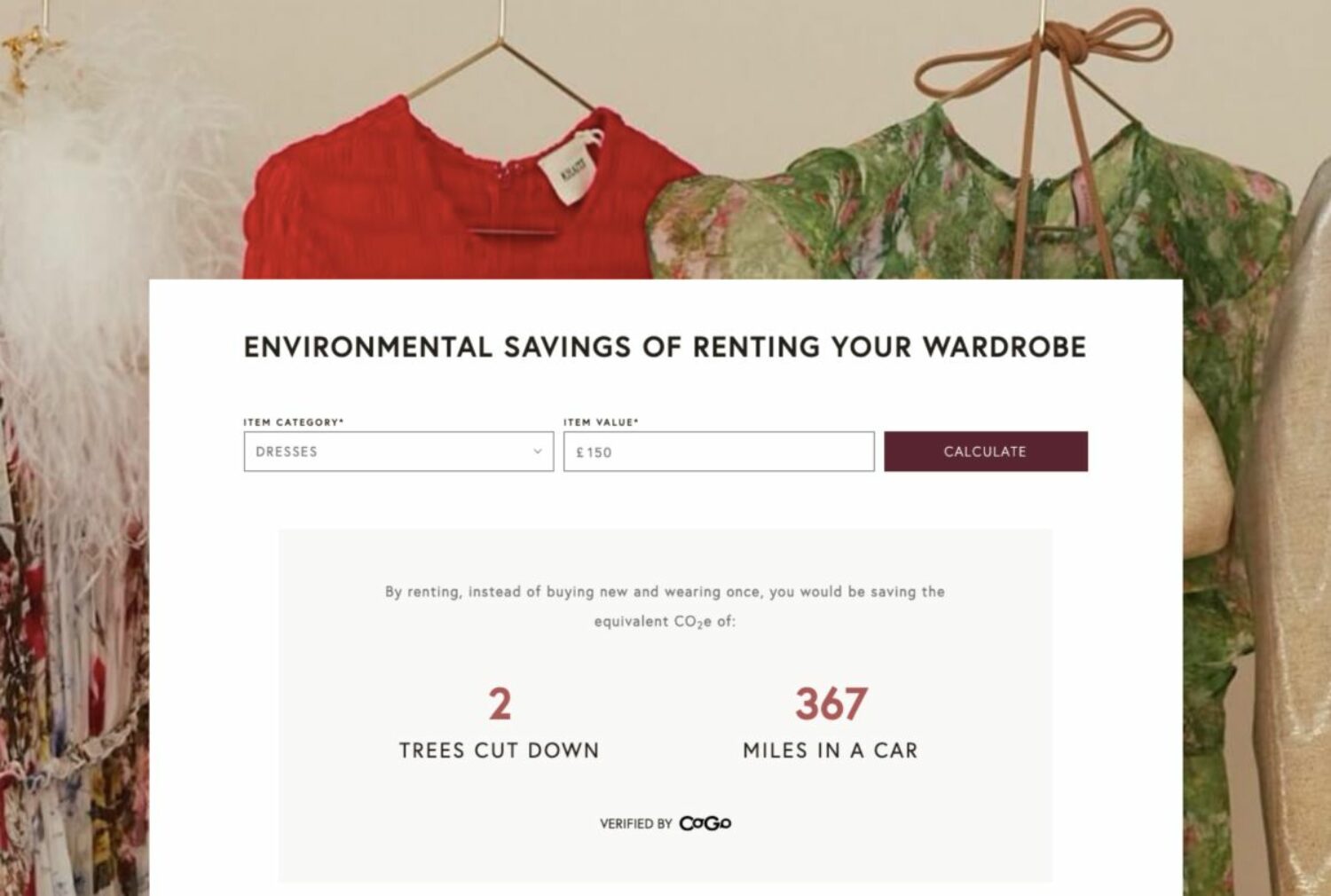
CoGo empowers consumers by giving calculating the impact of their purchases in real-time. Image: CoGo
“There’s an incredible growing urge from people to want to affect change with their purchasing power and CoGo has found a way to harness this brilliantly,” says Iona Ratcliffe, CMO at Ocean Bottle, which makes reusable drinks bottles and funds plastic waste clearance in the Philippines, Brazil, Indonesia and Haiti. “Their users are exactly the kind of users that represent our community so it’s a good synergy. Plus, it feels great to be part of the future of commerce.”
As well as helping the planet, the CoGo app identifies businesses that pay staff a Living Wage. Raised to £9.50 across the UK and £10.85 in London in November 2020, the Living Wage is a voluntary scheme to help businesses pay employees a fair salary. It differs from the government’s National Living Wage, which is £8.72.
“Being paid the real Living Wage has made a big difference to me,” says Luke Parker, a barman at the Pembury Tavern in Hackney. “It means I am no longer working constantly just to pay the bills.”
According to CoGo, I spent just 6.3 per cent in businesses that pay the Living Wage in December. This is something I can soon address: my local bookshop is a Living Wage employer – and it’s got a copy of Anton du Beke’s One Enchanted Evening.
Main image: Free To Use Sounds
